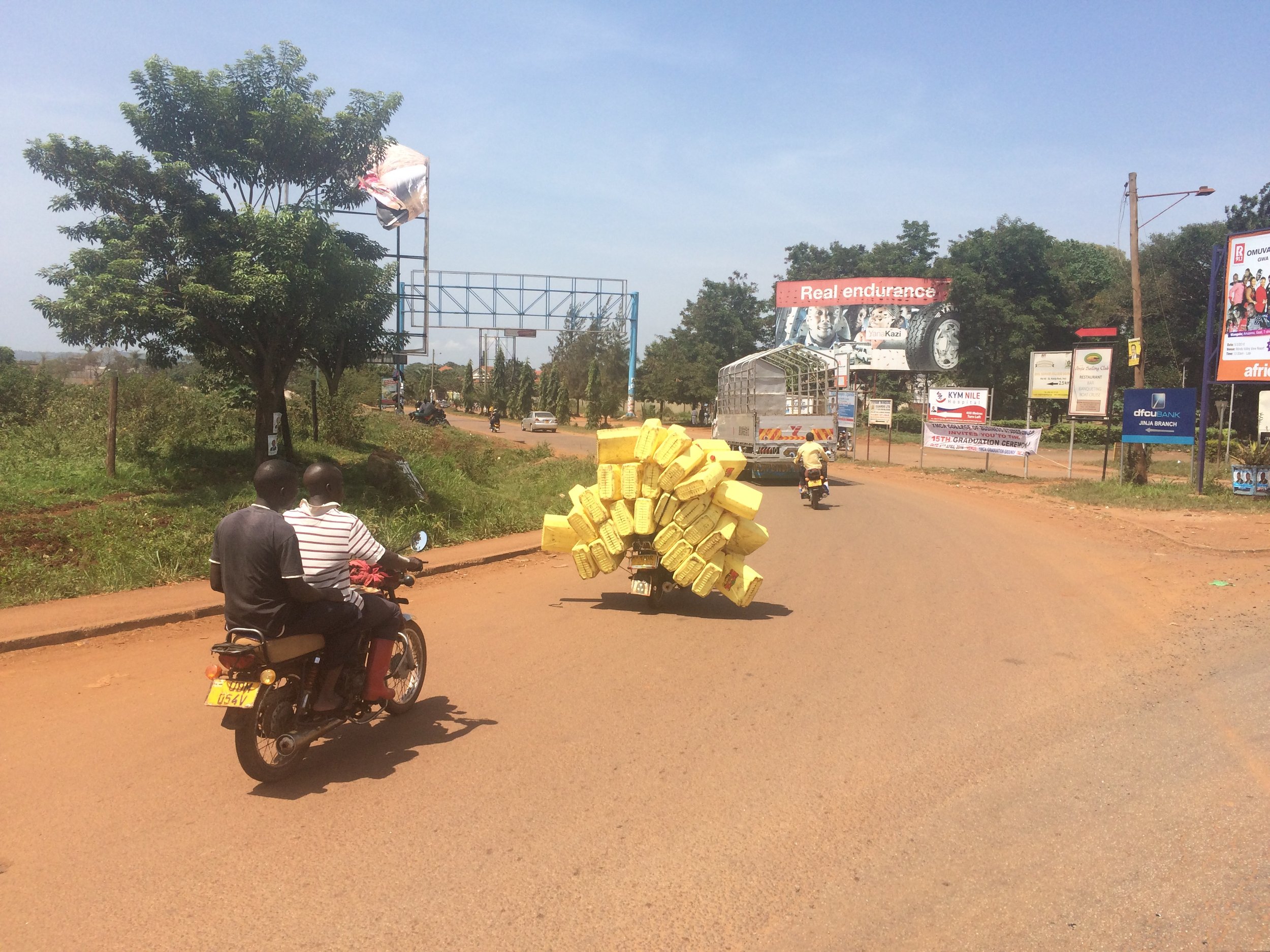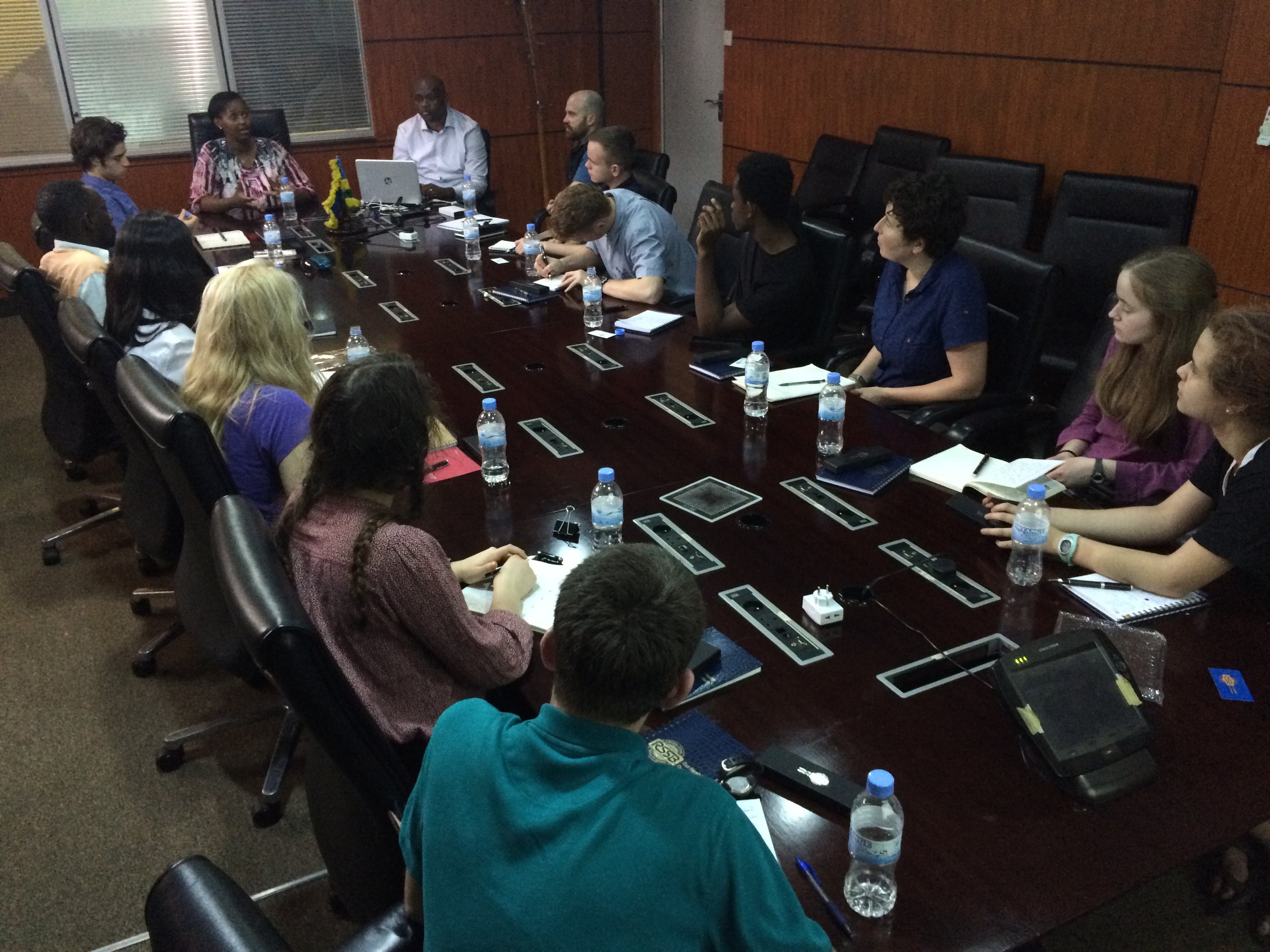Rwanda / Uganda 2016
Our Rwanda / Uganda trip for 2016 was incredibly educational, both for students and facilitators alike. We came in with ideas and preconceived notions about the history and present of Rwanda and Uganda, what the countries had been through and what techniques and approaches they had used to recover (or not) from their past and step into (or not) a brighter future. We found new ideas in person and onsite which we never could have anticipated from books, websites, or theorizing.
Read our student blog at the link above to understand student reactions and thoughts to the experiences they had on the trip.
This trip was open only to students of Catlin Gabel School in Portland Oregon. We hope to expand to the general public in the future for other trips.
OUR PRE-TRIP INFORMATION FOR POTENTIAL ATTENDEES:
TRIP DETAILS
Trip dates: March 11 – April 1, 2016
Group size: 10 to15 (Open to students of Catlin Cable School in Portland Oregon only)
Cost: $4300-4700
Trip leaders: Dave Whitson, Veronica Ledoux, & Greg Bennick
Student leaders: Luca Ostertag-Hill
TRIP OVERVIEW
As independent countries, Rwanda and Uganda are roughly as old as your parents. Of course, their histories stretch back much farther, with rich pre-contact civilizations and turbulent times as European colonies, but the countries we know today remain quite young. As a point of comparison, when the USA was of an equivalent age, John Tyler was president and the country still had a civil war looming two decades down the road. For all of the potential that America possessed, its future was hardly written in stone.
The point, then, is that even in the best of circumstances independence brings great question marks, and it can take a long time for newly established countries to find their footing. Rwanda and Uganda did not have the best of circumstances. Colonial rule systematically under-developed these regions, established arbitrary borders that neglected traditional affiliations, utilized an indirect approach to ruling that manufactured, capitalized upon, and exacerbated “tribal” affiliations, and then departed swiftly with little regard for their future.
It’s no surprise that independence was accompanied by tragedy, with Rwanda’s ethnic tensions ultimately culminating in genocide in 1994, and Uganda’s ethnic and religious divisions contributing to the catastrophic regime of Idi Amin.
And yet, over the last two decades both countries have been singled out as beacons for hope in the African continent. In 1991, Bill Clinton hailed Yoweri Museveni (Uganda’s president since 1986) as part of a “new breed” of African leaders, leaving behind the “Big Man” stage of the early postcolonial era.
In the 2000s, Paul Kagame (president of Rwanda since 2000) took up the mantle as the West’s African leader of choice, as he oversaw a dramatic transformation of a country torn apart only a handful of years earlier. Both presidents have brought stability to countries that were badly in need of it. Both have major accomplishments to highlight, from Museveni’s prompt and decisive action on Uganda’s AIDS crisis to Kagame’s economic initiatives in Rwanda.
At the same time, though, questions linger. They have been in power for a long time. Historical disputes have not been resolved or reconciled–merely silenced. Dissent has been quashed. When will these men relinquish their power and what will that mean for their countries? Will democracy flourish or will the divisions resurface?
Those are the questions that frame this trip. As we travel through Rwanda and Uganda, we will aim to develop a deeper understanding of the ways that historical legacies continue to influence these countries, we will examine the major developmental trends within both countries today, and we will seek the perspectives of Rwandans and Ugandans on what the future may hold.
We will pay special focus to three areas that are inextricably linked with individual wellbeing and developmental potential: education, health, and business. And, we will endeavor to see these countries as they see themselves, as opposed to the persistent narrative of Afro-pessimism that prevails in Western media.
POTENTIAL ITINERARY
March 12: Depart PDX
March 13-18: Kigali, Rwanda
We start in Rwanda’s thriving capital, where business is booming. 20 years after it was torn apart by genocide, it stands today as a symbol of optimism. Activities here may include:Understanding the genocide: visit to the Kigali Genocide Memorial, day-trip to Ntarama church memorial, meetings with gacaca practitioners and members of the National Unity and Reconciliation Commission
Tour of the Hotel des Mille Collines, aka “Hotel Rwanda”
Developing Rwanda: day-trip to work on a coffee plantation, meetings with Rwandan entrepreneurs. Organizations may include ELE Rwanda, Incike Initiative, and one of Kigali’s innovation spaces (like Innovation Village)
Education: School visit (possible overnight with host families), meeting with state educational official on teaching the genocide, meetings with social service providers including Social Care Youth Initiative and Haguruka
Day-trip to national park in eastern Rwanda
March 19-20: Muhanga, Rwanda
We’ll get a taste of village life here, roughly one hour west of the capital. Muhanga has a strong artisanal culture, thanks in part to foreign aid funds that have been invested in a manner that promotes fair trade ethics in service to community development. While here, we will:Stay with host families in the village
Experience a day in the life of an artisan, volunteering in a weaving cooperative for the day
Interact with, listen to, and learn from local people
March 21-25: Engeye Clinic, Uganda
Located in Ddegeya Village in southern Uganda, this health clinic offers a model of exemplary NGO work in a country filled with international NGOs. It also offers us a base of operations in a more rural part of the country, where we hope to:Learn about Uganda’s approach to health care and the role played by NGOs
Support the clinic through a project developed in collaboration with the directors
Attend a local school
Engage in the life of the community
March 26-29: Kampala, Uganda
Uganda’s busy capital offers an interesting counterpoint to Kigali, allowing for some potentially fruitful comparisons to be drawn. Activities to include:The pursuit of history: Whereas Rwanda’s recent history is writ large in Kigali through public memorials, Uganda’s history is far less visible in Kampala.
Developing Uganda: Whereas the NGO boom has largely concluded in Rwanda, it remains in full force in Uganda. Why? How does this different impact each country in distinctive ways? We’ll visit the Sseko Designs factory and connect with other Kampala-based NGOs
Government perspectives: We hope to speak with government officials and NGOs about the national plans for education and health, building on our experiences at Engeye. This includes the Uganda AIDS Commission and Doctors Without Borders. We will also meet with Kwame Rugunda, a rising politician in Uganda (and son of the prime minister).
March 30-31: Bududa, Uganda
We conclude our trip in one of the most beautiful parts of the country, situated in the midst of Mt. Elgon National Park (where elephants and monkeys roam free). While there, we will:See the park
Visit and support AVP’s technical school and orphanage
April 1:
Return home!























